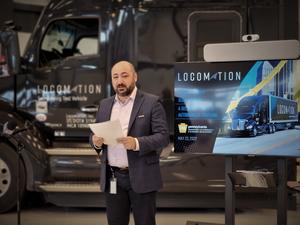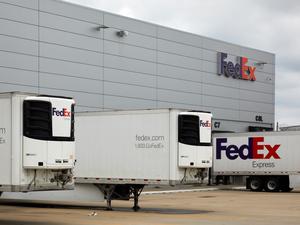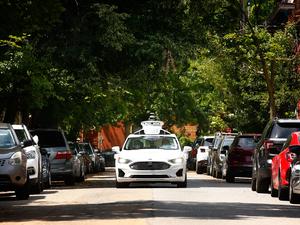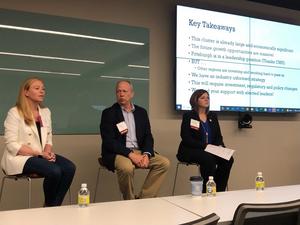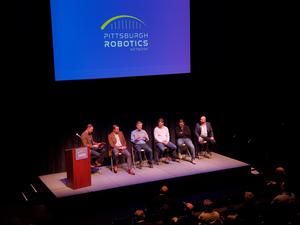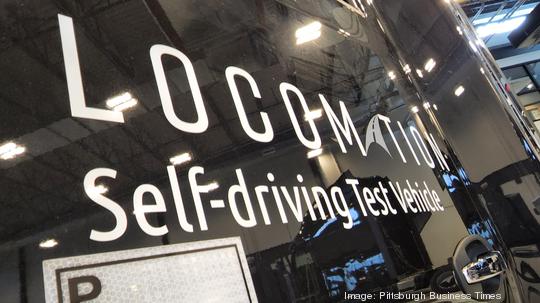
Pittsburgh has served as the founding home for several autonomous vehicle companies over the past few years.
And while each company is pursuing the route to commercialization a bit differently via the various approaches offered with their self-driving products, all AV companies that conduct testing in Pennsylvania must wait on legislators in Harrisburg to change state law if these companies wish to validate their efforts of truly driverless vehicles, a task that these very companies have had to go outside of Pennsylvania's borders to accomplish.
As it currently stands, Pennsylvania law bars vehicles from operating on public roads without a human safety driver present inside the vehicle, someone who is able to take control at moment's notice should the vehicle run into an obstacle or challenge that it's not able to navigate on its own. But that could be changing soon, allowing Pennsylvania to join about a dozen other states across the country where driverless vehicles are permitted on public roads.
When could Pennsylvania allow autonomous vehicles to operate without humans?
The question of, can autonomous vehicles operate without human drivers in Pennsylvania, largely rest on what happens with Senate Bill 965. The bill has been working its way through the Pennsylvania State Senate since legislatures first introduced it back in January. If passed as it currently reads it, would allow autonomous vehicle companies operating in Pennsylvania to conduct AV testing on public roads without the need for a human to be inside the vehicle.
The last action the bill received was on April 13, though more progress on the bill's passage could be coming soon.
Pittsburgh-based Locomation Inc. is one of several local companies that would benefit from its passage as the AV company is developing an autonomous trucking solution called Autonomous Relay Convoy (ARC) where a human operator drives a lead truck while an autonomous truck with a driver who is off-duty follows behind, enabling the trucks to double the amount of time permitted to operate as the two vehicles take turns swapping places along a route. Testing of the autonomous portion of Locomation's ARC product can't be validated in Pennsylvania, however, at least not yet.
"Pennsylvania has something special going on, especially in Pittsburgh," Locomation VP of Policy & Strategy Finch Fulton said in an email statement. "You can’t recreate the ecosystem we’ve got here just anywhere. But, we can find roads to test on elsewhere in the country."
Locomation is already conducting the autonomous portion of its platooning trucking solution outside of Columbus, Ohio, on a closed track. It's also conducting other forms of testing on portions of the recently opened Pennsylvania Turnpike 576, which runs between Bridgeville and Pittsburgh International Airport.
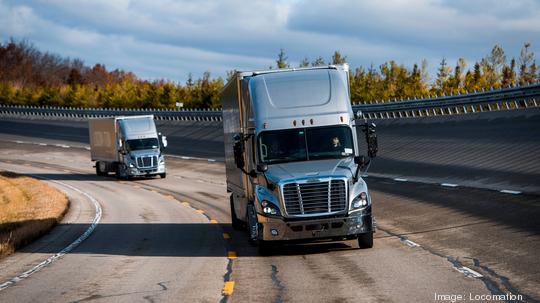
"If we have to go elsewhere to test, it means jobs, vehicles, and facilities have to go elsewhere," Fulton said. "That is why it is critical for Pennsylvania to pass enabling legislation for the safe testing and deployment of automated vehicles in the state. We’ve had very positive interactions with the legislature and hope a bill can be passed soon, potentially this summer, and signed into law by Governor (Tom) Wolf."
For his part, Wolf has voiced support for the bill.
During the official opening of Aurora Innovation Inc.'s new headquarters in the Strip District on April 20, Wolf said he would sign the bill if it ended up on his desk. Aurora, like Locomation, is also developing an autonomous trucking solution as well as an AV platform for ride-hailing and last-mile goods delivery.
"My hope is sometime soon," Wolf said in April. "I'm optimistic that it will get to my desk soon and I'll sign it…The idea is that we want to make sure that people are safe and that these vehicles are safe, safe to have them on our roads and streets."
Where else are Pittsburgh-headquartered AV companies conducting the testing of their vehicles?
As previously noted, Locomation is conducting autonomous testing on a closed track facility outside of Columbus, Ohio as well as on portions of Turnpike 576.
Aurora owns a closed track of its own in Hazelwood, which it acquired from Uber Technologies Inc. when the company bought Uber's self-driving division, Uber ATG, in January 2021. The company has also taken a significant amount of its testing to highways in Texas, where it's executing several long-haul trucking routes with its various shipping partners. Aurora is also testing autonomous passenger vehicles on the highways and suburban streets in the Dallas-Fort-Worth, Texas area.
Like the others, Strip District-based Argo AI has done testing in the Pittsburgh area for years, but more recently, the Argo AI announced it has gone driverless in Miami and Austin, Texas. The company claimed to be the first to operate driverless vehicles in both cities at the time of that announcement. Argo also conducts testing and or maintains engineering centers in Cranbury, New Jersey; Detroit; Los Angeles; Palo Alto, California; Washington, D.C.; and Munich, Germany.
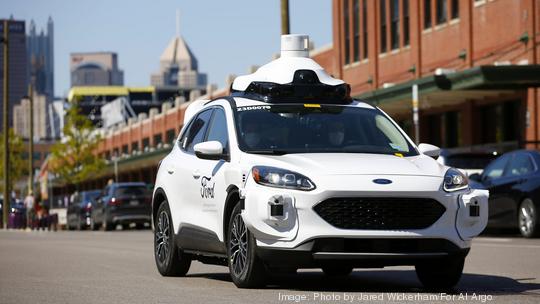
"Obviously, right now, we all have safety drivers when we are operating in Pennsylvania because it's illegal to not have one there, but it's kind of strange, we're actually the place that's supposed to be this hub of self-driving technology," Argo AI President and Co-Founder Peter Rander said during an AV panel discussion in Pittsburgh on April 21. "We (need) to make that transition and other states have already done that, so (we're) eager to see that happen."
Which states allow driverless vehicles?
According to the Insurance Institute for Highway Safety, 10 states explicitly allow AV companies to conduct testing without requiring a human to be in the vehicle, while several others don't outright prohibit the ability for these companies to do so.
Alabama, California, D.C., Louisiana, Maine, Michigan, North Carolina, Ohio, Tennessee, Texas, Utah and Washington are the states that currently do not require an operator to be in the vehicles, according to IIHA. West Virginia will join these states on June 10 while Oklahoma will join them on Nov. 1, according to IIHA.
